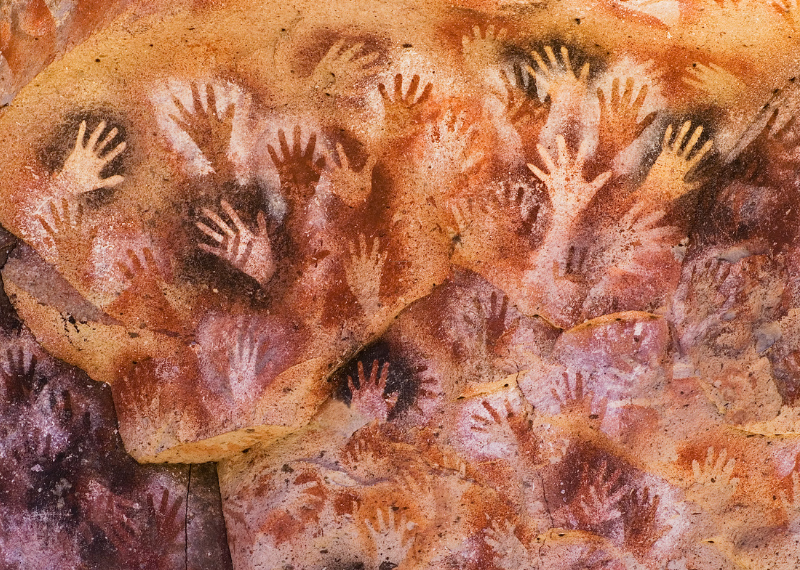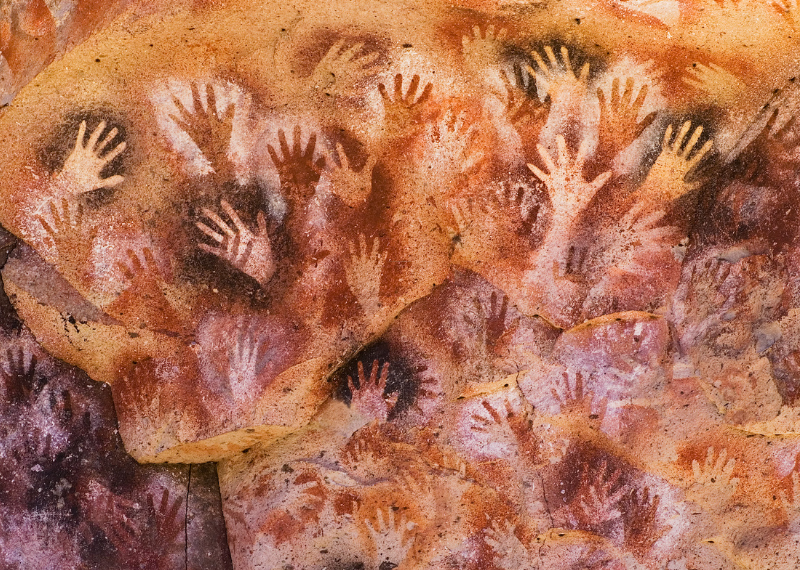
Today’s Sermon focus
We Follow Jesus, Our Good Shepherd
In 1859, Darwin published his famous treatise, Origin of the Species, in which he lays out the basic blueprint for evolution through competition or survival of the fittest. To say this book had an impact on our lives is one of the biggest understatements I can imagine. After all, modern biology and medicine is largely based on the reality of evolution.
Culturally as well, we’re all pretty familiar with the idea of ‘survival of the fittest’. For most of us, this is the whole story of evolution – that species change over time due to how well they have babies. And that is due to how well they fit their environment. If one individual fits their environment better than another, they will be able to compete for resources and thus have more babies than another less ‘fit’ individual. Over time and with many individuals duking it out this way, the genetics of the whole species shifts for improved fitness for that environment.
That’s the basic idea, anyway.
However, this is not the whole story of evolution. Not by a long shot. Cooperation and altruism are also important parts of how evolution works. But has anyone heard the phrase the survival of the friendliest? Or the survival of the selfless? Nope.
We, for whatever reason, cling to the story of the survival of fittest as being the driver of evolution and therefore the driver of new life on our planet.
Unfortunately, this way of telling the story of evolution seems to justify the worst aspects of human nature. It works for the parts of us that want to horde, want to dominate, and also want to feel just fine when we see others suffering in poverty or other difficult situations. It works for those of us whose way of being in the world requires disregard for the lives of others, like executives at chemical companies who chose to dump toxic waste in poor communities or countries. Anyone who looks at another in struggle and says, “Sucks to be you, but not my problem. I’m doing just fine, because I am more fit for this world.”
So, one can find justification of such behavior in believing that evolution through competition is the primary driver of how new life emerges. It makes our selfishness seem inevitable and even right.
And then there’s an added complication of God. For those of us who profess that God is our creator who continues to create AND who also believe in evolution at the same time, we have to wonder what this says about God. If we embrace ‘survival of the fittest’ as just the way it is and is the physical mechanism of creation of new life, does that mean God creates through competition? That God created our world as one big cage fight to see who was going to win? That God too is indifferent to the pain of the least fit, because their suffering and death is just part of life and creation? Are these thoughts lurking in the underbelly of our minds?
If the worst aspects of our societies and ourselves are reflected in God’s own biological mechanism for life’s emergence, does this not seem to justify our worst tendencies? Make them seem right, natural, and perhaps even necessary? Remember that famous line from the movie Wall Street – Greed is good? We tend to believe competition is the corrective power in our markets and in our world.
However, collapsing evolution to mean only that the fittest survive is a drastically simplified understanding of evolution. This is particularly true for humans. Our actual story is not explained just by ‘survival of the fittest’. Our evolution story has far more to do with our ability to cooperate and communicate than it does with our abilities to compete and dominate.
There is a theory about human evolution described in the book, Humankind by Rutger Bregman (wonderful book), that is summed up as the ‘survival of the friendliest’.
Two little known facts about us that support the ‘survival of the friendliest’ theory of evolution. One, we are the only primate where you can readily see the whites of each other’s eyes, meaning we are the only primate for whom it is plainly clear to everyone where we are looking. Two, we’re also unique in blushing. So, if our survival depended on dominating or out-competing others, our eyes and blushing red cheeks alone would sink us all. Our biology makes us inherently vulnerable to each other. It makes us transparent. We are social beings who were made to cooperate, communicate, be honest, and work together. We want to help and serve. These are the very qualities that make us able to survive in every climate on the planet and cooperate our way into creating sophisticated worlds.
Our story is not just “nature red in tooth and claw.” It is not only ‘survival of the fittest’.
So, what if our understanding of evolution, and in particular human evolution, was not collapsed down to the ‘survival of the fittest’ but ‘survival of the friendliest’? How would that change our lives? The way we prepare our kids for the world? The way we interact with strangers? The way we run our businesses or governments?
Now, I know you didn’t come to church for a biology lesson. But isn’t this interesting how the ‘survival of the friendliest’ theory of evolution aligns with a lot of what Jesus teaches us to do? Take care of one another perhaps to the detriment of ourselves? Turn the other cheek? Do not dominate others, but support them and care about them? Love your enemies? Be patient and compassionate? Be generous with what you have, including your own life? Not to mention the Ten Commandments and the Golden Rule?
The gospel tells the story today of all the people crowding around Jesus, desperate for their chance at healing, whatever that may be for them. We know that the people during this time were living under the boot of Rome through the complicity of their political and main religious leaders. This was not an abundant life where people knew they were safe and free from exploitation. This was not a society that was based on the ‘survival of the friendliest’. Let us remember, John the Baptist was just beheaded for calling out immoral behavior in the government, after all.
So as Jesus’ reputation grew, the people were hungry for truth, healing, compassion, and integrity. They were hungry for a man who took ‘survival of the friendliest’ to its fullest possible meaning; living for the sake of others and commanding his disciples to love each other as he loved them, without reservation.
The Jeremiah, Ephesians, and gospel texts are all set in times and places among people of faith where there were some not-so-great shepherds. In Jeremiah, the prophet is blasting the leaders for harming their people, making them afraid and dismayed. In the Ephesians text, Paul was writing to a new church that was a part of the Roman empire which was decidedly unfriendly to the new Christians, as well as slaves, women, and non-Roman peoples. And in the gospel, people were clearly starved for righteousness, justice, and hope.
So, what do we do when history repeats itself and we find ourselves in times and places where we are afraid and dismayed by the shepherds in our lives?
Like the people in the gospel today, we follow Jesus, our Good Shepherd.
We follow the ways of the one who commanded us to love, to be patient and kind, to lay down our own lives and agendas for the other. We follow the one, who I’m guessing, would be delighted with the theory of the ‘survival of the friendliest.’
In Paul’s day, there was no hope that the political realities of the Roman empire would shift. They weren’t hopeful that the next emperor would be benevolent. So, from where does the hope of this church come? From following Jesus.
In his letter to the church of Ephesus, he writes “In his flesh he has made both groups into one and has broken down the dividing wall, that is, the hostility between us. 15He has abolished the law with its commandments and ordinances, that he might create in himself one new humanity in place of the two, thus making peace, 16and might reconcile both groups to God in one body through the cross, thus putting to death that hostility through it.”
Jesus reconciles us to each other, putting to death our hostilities through the power of the cross. He brings us back to the way we were created to be.
Paul was encouraging these people to lay down their grievances and differences to acknowledge their shared humanity, their shared faith, and shared identity as children of God. Regardless of what the official “shepherds” are doing, we always have access to Jesus. We always have access to kindness, patience, altruism, cooperation, honesty, and love for one another.
The goodness of life is all around us, bubbling up new all the time. We too are participating in new life, though not through our aggression, suspicion, but through our friendliness, our openness, our trust, and our love. Jesus’ and God’s flow of evolution in our world agree on this, that we are part of the birthing a new world through God’s love in us. We can do this with each other and for each other.
Friends in Christ, we are led by the Good Shepherd who teaches us, guides us whenever we call out for him. He will not lead us astray, but walk with us through our valleys of the shadow of death. He will guide us and we can follow for the good of ourselves, all people, and all of Creation.
AMEN
Mark 6:30-34, 53-56
53When they had crossed over, they came to land at Gennesaret and moored the boat. 54When they got out of the boat, people at once recognized him, 55and rushed about that whole region and began to bring the sick on mats to wherever they heard he was. 56And wherever he went, into villages or cities or farms, they laid the sick in the marketplaces, and begged him that they might touch even the fringe of his cloak; and all who touched it were healed.
Service Recording
Sermon at 23:00
Join Our Email List
We email prayer requests to the community, along with worship bulletins for online worship, updates on special events, and the monthly newsletter. In general, you can expect about 3-4 emails a week from Celebration Lutheran.

0 Comments